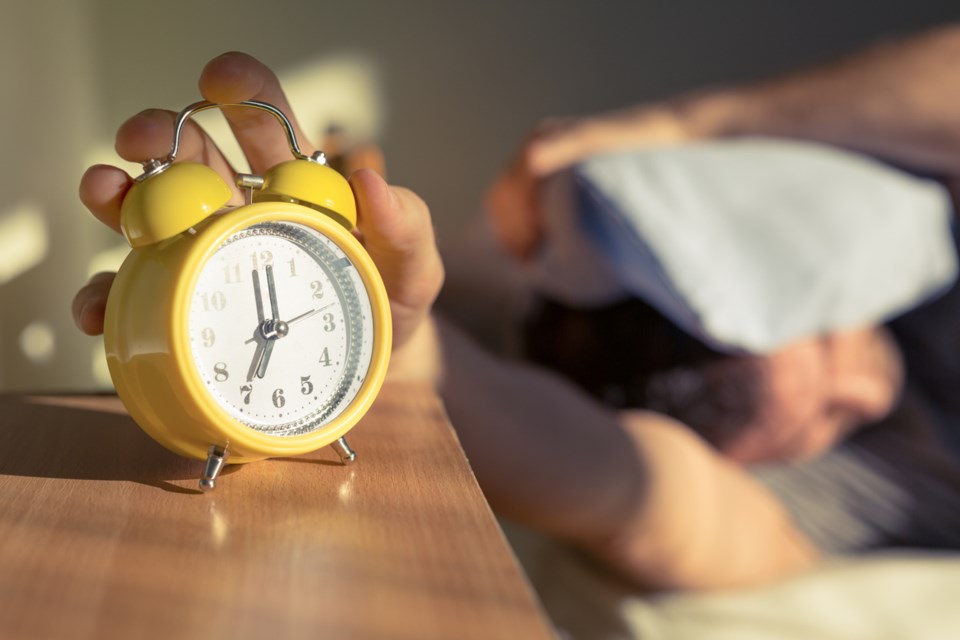It’s that wonderful or dreaded time of year when the clocks go forward.
For younger, working people it can affect them in a variety of ways both bad and good. But for seniors the jury may still be out. After all, some say, seniors can sleep in or go to bed earlier to make up for the time difference. This assumes that seniors don’t have things to do like volunteering or going to an early morning program, which require a time commitment.
Though there is a range of opinions, adequate sleep for seniors, as for younger people, is an important factor in overall health. According to a health report titled Duration and Quality of Sleep Among Canadians Aged 18 to 79 released in 2017, “Insufficient sleep (short duration and poor quality) is associated with a range of adverse health outcomes, including obesity, type 2 diabetes, cardiovascular disease, injuries, all-cause mortality, depression, irritability and reduced well-being.”
So the question is how much sleep and what quality of sleep do we need to get as we get older? According to an article on Comfort Keepers of Canada’s website there are “differing theories in answer to this question. Much data, including information from the National Institute on Health, suggests seniors can remain healthy with less sleep than the general population. For example while the average amount of required sleep is about seven to nine hours nightly, some sleep experts say a bit less than that – maybe about seven and a half hours on average – is adequate for seniors. Other experts report that seniors need as much sleep as they always have to function at their best.”
The aforementioned health report recommends that seniors aged 65 or older should get seven to eight hours of sleep per night. The authors argue that this will ensure seniors can function at ideal levels physically and mentally. But they conclude in their report that “short sleep duration and poor sleep quality are prevalent among Canadian adults. About one-third sleep fewer hours per night than recommended for optimal physical and mental health. This group also experiences poor sleep quality more frequently than do those who sleep the recommended number of hours.”
So, how can we get a better sleep? According to the Comfort Keepers website, there are three main things one can do for a better night’s rest: talk to your doctor about sleep disorders, establish a good bedtime and waking routine, and be active during the day.
You might talk to your doctor about taking too long to go to sleep and waking up too often during the night. Or you might talk to your doctor about pain, medications or other health problems that you think are keeping you awake. Medicines that can disrupt sleep include antidepressants, beta-blockers, and cardiovascular drugs. Your doctor might suggest limiting the use of sleep aids and sleeping pills as many of them have side effects and are not intended for long-term use. Sleeping pills don’t address the causes of insomnia and can make it worse in the long run.
During the day, try to stay active. Attempt a regular exercise program, cut down on those long naps, and get out in the sunshine (I know sometimes that is hard to do on the rainy North Shore). Sunshine can improve your mood and that contributes to a good sleep.
At night, establish a regular, relaxing bedtime and waking routine. Check your sleeping environment to see that it is sleep-conducive. Check you mattress, pillows and blankets for comfort. Turn off electronics before bed and don’t use them in bed. Finally avoid nicotine, alcohol and caffeine before bed.
At a gathering of the Lynn Valley Seniors Association, I asked how many disliked the spring forward time change and most of the seniors said they hated it because it broke their routine, they felt like they lost an hour of sleep, their pets were disgruntled, and so on. Whether or not we like the time change, and there are many who do like the time change, we need to find ways to adapt to the changes. Some suggestions include staying away from sleep disrupters like caffeine and day-time naps, setting and adhering to a new sleep routine, perhaps getting a bit more exercise or at least sticking to your exercise program, checking to see that your sleep arrangements are good: a cool room, limiting noise and comfortable bedding are key.
Let’s get the sleep we need to age well. As Shakespeare says: “Sleep that knits up the raveled sleeve of care, the death of each day's life, sore labor's bath, balm of hurt minds, great nature's second course, chief nourisher in life's feast.”
Margaret Coates is the co-ordinator of Lionsview Seniors’ Planning Society. She has lived on the North Shore for 48 years and has worked for and with seniors for 20 of those years. Ideas for future columns are welcome Email: lions_view@telus.net



